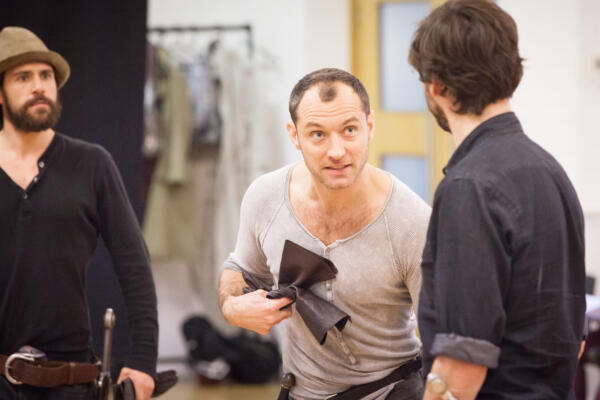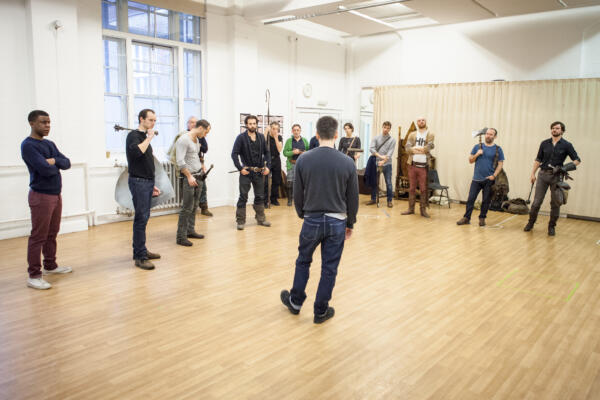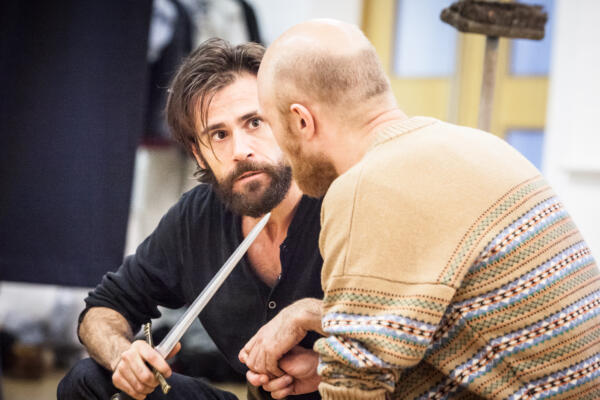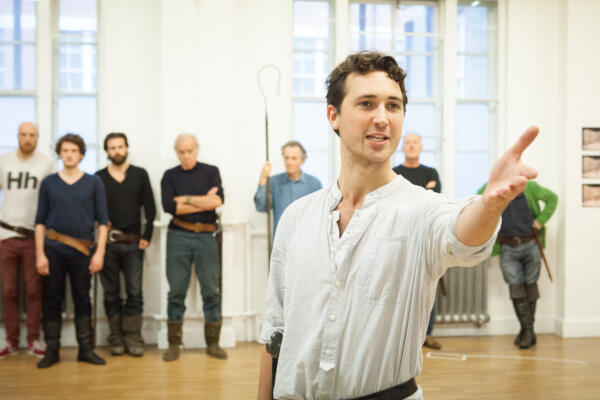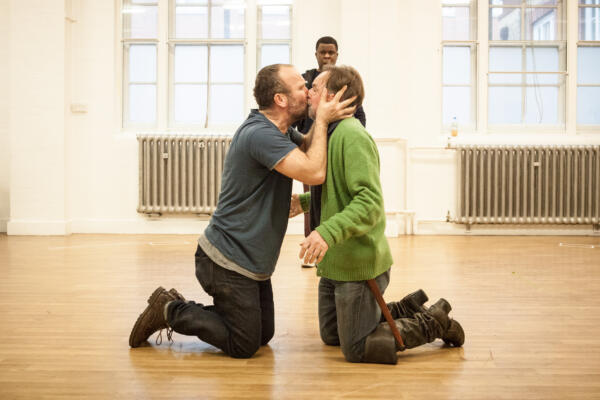Henry V | Rehearsal Diary
Henry V– Week Two
This week the priority was to revisit every scene to explore them further. We immediately got each one on its feet to look at the blocking and textual aspects. Interestingly, the shape of each scene – which we worked on in week one – seemed to give us what we needed. It demonstrates that the collective instinct regarding blocking in the early days of rehearsals can be very useful.
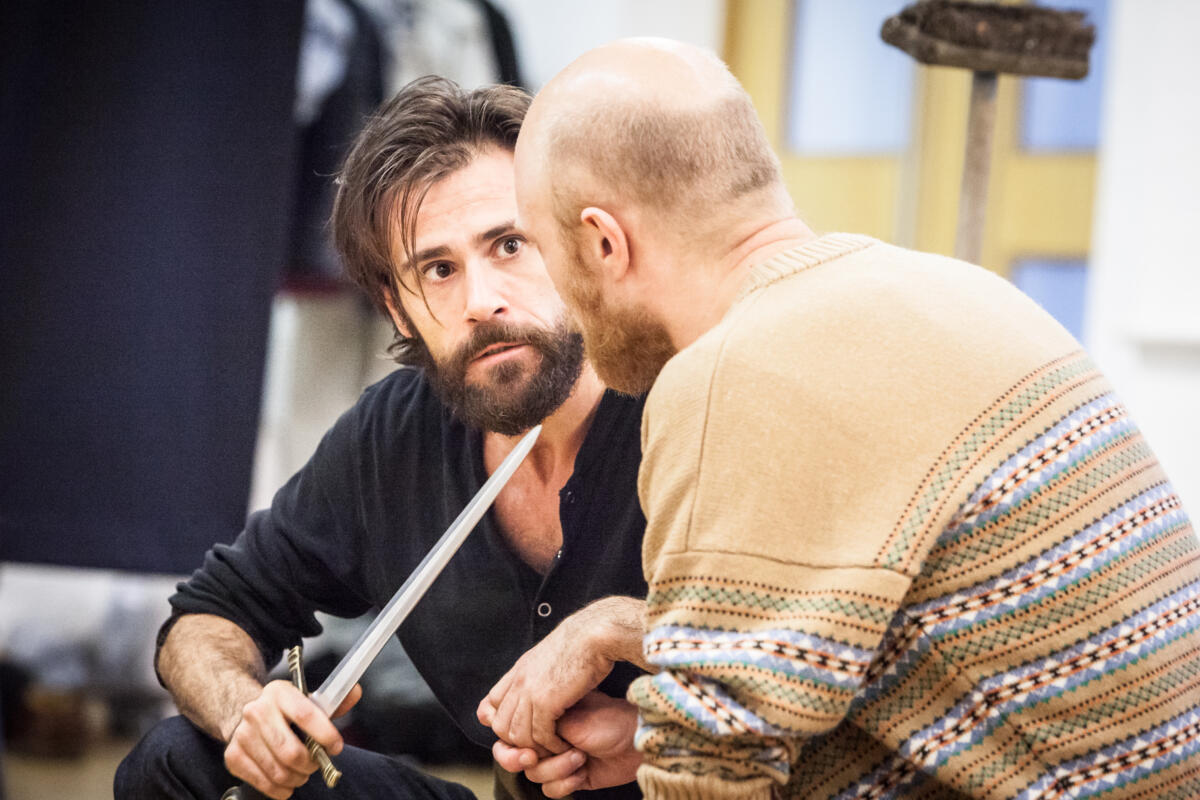
The purpose of this week was to absolutely make our choices with regard to the text. Actors were allowed to have their scripts while we worked this week, with the idea being that next week they will set them aside and work the scenes from memory. Michael was keen that the actors take collective responsibility for writing down their entrances and exits, which can be quite tricky as there are seven possible choices within the set! It was also important that general blocking was recorded too, so that when we come to revisit the scenes in week three we don’t have to stop and remind the actors where they’re meant to be.
Another aspect of the production we worked this week was movement. Michael wanted to explore the possibility of staging ‘battle wipes’, which would help tell the tale of the two warring sides of France and England – the idea being that these ‘wipes’ would happen in between scenes, showing the passage of time and charting the course of the Battle of Agincourt.
Henry V is an intriguing play in this respect, because Shakespeare charts the course of the Battle of Agincourt but hasn’t actually written the staging of any of the battles themselves. Michael wanted to explore showing both sides warring and in transit between scenes. To do this, he and Michael (Ashcroft) work together with the actors, looking at battle configurations moving en masse from stage right to left, both physically and vocally.
Two other elements that were worked into this week were voice and dialect sessions with Penny Dyer and costume fittings. There are so many different characters in the play, and so many accents – Irish, Welsh, London Estuary – that some very clever scheduling was worked out in order to release people to attend these extra sessions.
